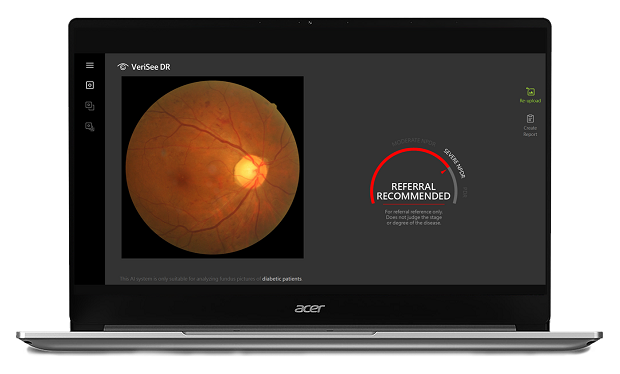Tech giant Acer has announced the availability of VeriSee DR, an ophthalmic AI-assisted diagnostic solution for diabetic retinopathy (DR), to promote its early detection in the Philippines and other Southeast Asian countries.

The program consists of three-month free use of VeriSee DR, as well as Acer antimicrobial keyboard mouse sets to enable hospitals and clinics to conduct screening tests more efficiently.
With the rise of diabetic patients, Acer said it hopes that by making screening more accessible, it can help detect high-risk cases and contribute to early diagnosis and treatment for DR patients.
With a rapidly growing population of over 680 million people in SE Asia, medtech is booming in the region as governments and medical institutions look for smart healthcare solutions.
In addition to the fast economic development and change of diet, many SE Asian countries have long been facing an increasing number of diabetic patients.
According to recent estimates by the International Diabetes Federation (IDF), 90 million adults (aged 20-79) were living with diabetes in the region in 2021, of which, 51% or 46 million are undiagnosed. The total adult diabetes population is estimated to increase to 113 million by 2030 and 152 million by 2045.
Acer said it is leveraging its technology expertise, combining with AI and rich clinical data to keep the company at the forefront of innovation in healthcare.
VeriSee DR, a SaMD (software as a medical device), is the flagship AI product developed by Acer Group. The software uses AI to analyze images of diabetic patients’ retinas with ophthalmology-level of accuracy and give an immediate referral recommendation. It has already reached over a 50% adoption rate in medical centers in Taiwan.
Through this initiative, VeriSee DR is now expanding its availability in the country. Acer plans to launch the DR screening program in the region soon and will also promote it to other SE Asian countries, including Philippines, Vietnam, and India afterwards.
The purpose of the program is to leverage the AI-assisted screening software to ease the problem of limited healthcare resources – a shortage of doctors and to increase diagnostic efficiency for the local hospitals and clinics.
Acer said it aims to help achieve a broader scale of DR screening, so diabetic patients can receive early treatment to avoid potential blindness.
For hospitals and clinics that have interests in the program, they can directly visit this link and apply online by Sept. 30.




